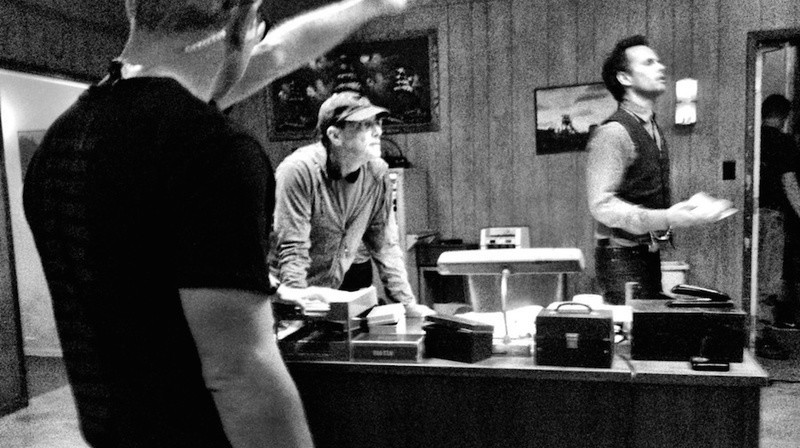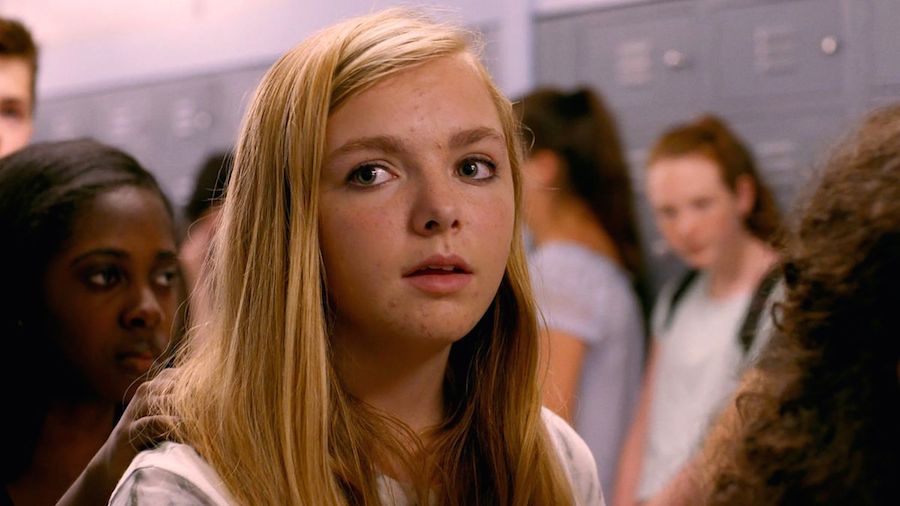Thumbnails is a roundup of brief excerpts to introduce you to articles from other websites that we found interesting and exciting. We provide links to the original sources for you to read in their entirety.—Chaz Ebert
1.
“Why Bo Burnham’s ‘Eighth Grade’ Gets It Right“: At Indie Outlook, I share my thoughts on the best film I’ve seen thus far in 2018.
“Nothing angered me more as a teen than high school movies that failed to take my pain seriously. Despite its memorable soundtrack, ‘Grease’ was a sanitized nostalgic fantasy populated by adults with a troubling case of arrested development. Even films I adored, such as ‘Dead Poets Society,’ contained stereotypical nerds with thick glasses, ever-present allergies and zero social skills. ‘Eighth Grade’ doesn’t have an ounce of condescension, and the laughter that it generates—which is plentiful—arises out of recognition rather than ridicule. (Fisher’s under-the-breath delivery of ‘Who cares?’ while forcing a banana into her mouth is uproarious.) Burnham avoids any hackneyed melodramatic plot developments because he’s well aware that the life of a middle schooler is dramatic enough. Of course, no honest film about junior high could be made without it getting slapped with an R rating by the MPAA for—in this case—‘language and some sexual material.’ What the ratings board, in their famously limited wisdom, appear to have forgotten is that junior high itself is rated R. No parent, teacher or guardian can prevent a sixth grader from rapidly losing their innocence bred in elementary school as they enter a volatile community preoccupied with puberty and four-letter words. This transition would be less extreme if schools simply housed grades kindergarten through eighth grade under the same roof, a prime motivator for students to be better role models. It’s so easy to feel detached from the rest of existence while imprisoned in junior high, and every single person currently enrolled in it is entirely of age to see this movie. This is a rare instance in which sneaking a purchase with a fake ID could prove beneficial to your mental health.”
2.

“Of Their Age: Olivier Assayas on the Making of ‘Cold Water’“: In conversation with Criterion‘s Hillary Weston.
“‘Cold Water’ was a turning point. I’ve always had a hard time with scoring movies. It’s something I did on my first and second features, and I was not so happy with the results. I did it on my third feature, ‘Paris Awakens,’ and though the music was by John Cale and considerably better than the music on my previous films, I was still not happy with the way music connected with emotions and within the images. The movie I made right after that, ‘A New Life,’ had no music at all. So ‘Cold Water’ was a way of going back and building a new relationship with music. What was fascinating about it was that, for the first time, I was using only music that I loved. The way I approached that very long party scene was by structuring it with music, with tracks that would cover the specific emotions and the way they change during the night. Ultimately, the songs ended up becoming one with the narrative—they say something that’s beyond the story. I think that people who have experienced the seventies are connected by that music, so all of a sudden it’s a universal language. In many ways, the soundtrack to Something in the Air is much closer to the kind of music I loved at that time. I was very much into British underground. But the way I approached ‘Cold Water’ was a little different. It doesn’t have the music I was actually listening to; it’s the music kids at that time were listening to.”
3.

“Europe’s rising nationalism is putting pressure on film directors and the stories they tell“: According to Jeffrey Fleishman on The Los Angeles Times.
“‘There is now a blacklist of books, theater directors and filmmakers,’ Polish director Pawel Pawlikowski, whose ‘Ida’ won an Academy Award for foreign language film in 2015, told the press in May at the Cannes Film Festival, where he won the director award for ‘Zimna Wojna (Cold War).’ ‘I have the honor to be on this list. With the new [Polish] government, which has taken control of public television, it is just like under communism.’ Polish authorities have denied a blacklist, but ‘Ida,’ the story of a Jewish orphan raised by Catholic nuns after her parents were killed in World War II, touches on the sensitive question of Polish complicity in the Holocaust. The nationalist government, controlled by Law and Justice Party leader Jaroslaw Kaczynski, amended a bill last month, making it essentially a civil violation to accuse Poland of having had a role in those horrors. It was part of a broader effort by the establishment to whitewash any hint of transgression and celebrate Polish identity. ‘They are obsessed with rewriting history,’ said Agnieszka Holland, a Polish director and Academy Award nominee. ‘They want to change the history into this heroic, nationalistic legend where all Poles are wonderful and all others are guilty of everything.’ She added that the government explored the ‘quite naïve idea’ of producing an epic film on Polish history — spoken in English — that would be distributed by Hollywood.”
4.

“‘I Like Being Aggressive in the Storytelling…’: Michael Dinner on His CBS James Ellroy Adaptation, ‘L.A. Confidential’“: Another great interview conducted by Jim Hemphill at Filmmaker Magazine.
“The conversation with the director of photography began with what I didn’t want to do. The cliché in film noir is hard lights coming in through blinds, so we shot everything with soft light. And then there’s a conversation about lenses — we shot on wider lenses that had a shallower depth of field. In general I tend to shoot on the two extremes of the lens; I like being aggressive in the storytelling and taking the audience by the neck and saying, ‘Pay attention to this.’ There’s a scene in the pilot early on where a guy pulls a gun, shoots a cop, gets in his car, speeds away, does a U-turn, and then he’s T-boned. My thought was, I’m going to shoot this the same way I would shoot this scene today, it’s just that they’re in period outfits in period cars. There would have been a way of shooting that 50 or 60 years ago – even 20 years ago – where the camera wouldn’t be as aggressive. I wanted it to be as kinetic as possible, so I turned to the visual effects people and said, ‘I don’t want to be limited.’ The great thing about Broadway in downtown Los Angeles is that there’s architecture to hang shots on, and then you just have to somehow remove the little signs and meters and lines on the street and things like that. I wanted to make sure I could rotate around 360 degrees and clean it up, because that to me makes it less of a museum piece. So that was the approach: how can we tell this story so that there’s an emotional pop to it, and it’s aggressive in modern terms, but still assimilates noir filmmaking? It was tough, because we don’t preserve architecture in Los Angeles. Trying to recreate 1952 L.A. is like doing a science fiction movie set on the planet Xenon.”
5.

“Terry Gilliam and his ‘Don Quixote’“: Cineuropa‘s Susanne Gottlieb reports from the Karlovy Vary International Film Festival about the exuberant director’s latest polarizing feature.
“Gilliam has a natural aversion to awards and the big limelight. In Karlovy Vary, he jokingly pushed the narrative that he achieved something that the legendary Orson Welles couldn’t. Welles, whose films also got caught up in production complications, was opting for an adaption of the Don Quixote material that never materialized in its final form. But while Gilliam is a fine director, none of his work reaches Welles’ cultural legacy. The comparison is a bit farfetched. Has the master of fantastic worlds simply grown too bitter with the business? Gilliam hopes he hasn’t become Toby. ‘There are so many talented filmmakers that make their first film and then they get dragged into the seductive world of commercials,’ he says. ‘They never come back, so this movie is a warning to young filmmakers.’ Having himself shot commercials, Gilliam is familiar with the instant financial gratification of the money paid in that sector. In an early scene in the director’s latest feature, Toby’s loss of vision and purpose as a filmmaker becomes apparent when he watches the student version of his own ‘Don Quixote,’ a piece of art with an aura he is trying to replicate in a big budget production. Glued to the DVD Player, he gets lost in the film, dissecting its soul but coming up empty. If that was the warning that would reach the young filmmakers in Gilliam’s own audience loud and clear, one might cherish the lesson learned and move on, even if it took a very uneven movie to get there. Unfortunately, that is not the only lesson Gilliam’s film advances. The convoluted mess that is ‘The Man Who Killed Don Quixote,’ a miscellaneous mix of ideas, sends out another warning even clearer: sometimes, it is better to kill your darlings.”
Image of the Day

Chas Allen, one of the real-life subjects of “American Animals” (portrayed in the film by Blake Jenner), chats with Sam Fragoso on his indispensable Talk Easy podcast.
Video of the Day
Alexis G. Zall, the veteran YouTuber who spent her adolescence uploading splendidly sardonic and insightful videos to her channel, shares 20 nuggets of wisdom she’s learned during her 20 years on this planet.












